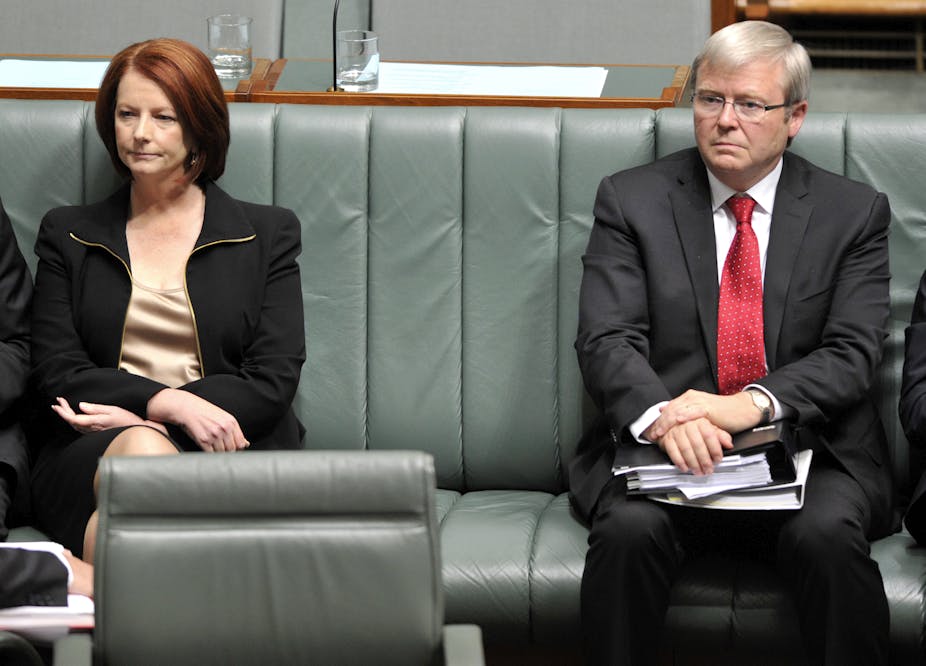Australians are more dissatisfied with the way democracy works now than they were after the Rudd government was elected, a poll has found.
According to the ANU poll of 2001 people, there has been a 13% decrease in the level of satisfaction with democracy since the last federal election.
The poll showed that after Kevin Rudd’s election in 2007, only 14% of people were dissatisfied with democracy. Under Julia Gillard’s minority government, 27% of Australian voters say they’re not happy with democracy.
A growing number of people are also concerned about the quality of government services.
“Overall Australia has the highest level of satisfaction with democracy, second only to the United States,” said Dr Juliet Pietsch from the ANU’s School of Politics and International Relations. The recent dip “seems to be correlated with an overall dissatisfaction with the government.”
Australian issues
The economy is the biggest problem facing Australia according to the poll. Researchers found that most voters would like to see a tax on profitable mining companies, an increase in the tax-free threshold and a tax on the largest polluting companies.
The survey found:
Four out of ten people would like to deal with a government department in person.
81% would like to see more government money going to education and 71% would like to see an increase to the aged pension.
Only 44% wanted to see more spent on reducing carbon pollution and 20% wanted more spent on unemployment benefits.
16% mentioned immigration as the most important issue facing Australia, down four points from the last poll.
55% said they were satisfied or very satisfied with the way the country is heading, down from 63% at the last poll.
School report
Professor John Wanna said if the ANU team’s poll was a school report for the Gillard Government it would read “doing okay, but could do a lot better.”
Voters may be more concerned about government at the moment because “we’ve gone through a period of intense political adversarialism in the context of a minority government… It may be an issue about mixed messages coming from governments, governments not having a narrative, [and] governments not standing by a particular framework.”
The findings meant there was a “huge communication problem” for government, Professor Wanna said.
You can read the full ANU poll here.

